The Age of Rage
We live in interesting times. Will we learn the lessons of the past?
Scary times. It’s as if what is rising up within us as a country is disturbing and insurmountable. No matter how hard we fight we keep sinking deeper and deeper into a frightening unknown that threatens to drown us.
The Great Transformation was started to share the data and evidence I see as the best roadmap to guide us through this moment. Looking back at history helps so I’ll be doing that too.
But there’s something else that I’ve found that helps provide perspective - talking to older people with a longer view of what’s shaping this era.
In the summer of 2020, I had a fascinating conversation that helped me reset my understanding of the events rattling the world. It was a time when we were all sheltering in place and finding our way cloistered with our families, as the best way to protect ourselves from a deadly virus.
Some of us—single and with empty nests—found ourselves in complete isolation and devoid of almost all human interaction. Yes the world continued spinning but it was as if our species was taking a time out and watching what would happen without us commandeering its direction.
For weeks I worked alone, poring over voter data and polling numbers by myself in a campaign that was both the most peculiar and consequential of my career. I befriended some squirrels while simultaneously finding myself thrust onto the national stage as a co-founder of The Lincoln Project.
For a few nights that summer I was awaken by the sounds of screams, gunfire and police sirens as the social unrest after the George Floyd murder erupted. Storefronts across the street from me were smashed in, masses of raging mobs rallied around my downtown home and I wondered what my next steps would be if my home was attacked, broken into or burned by people whose rage I understood.
On one morning in the midst of it all I got a call from a long time legendary columnist with The Los Angeles Times: George Skelton.
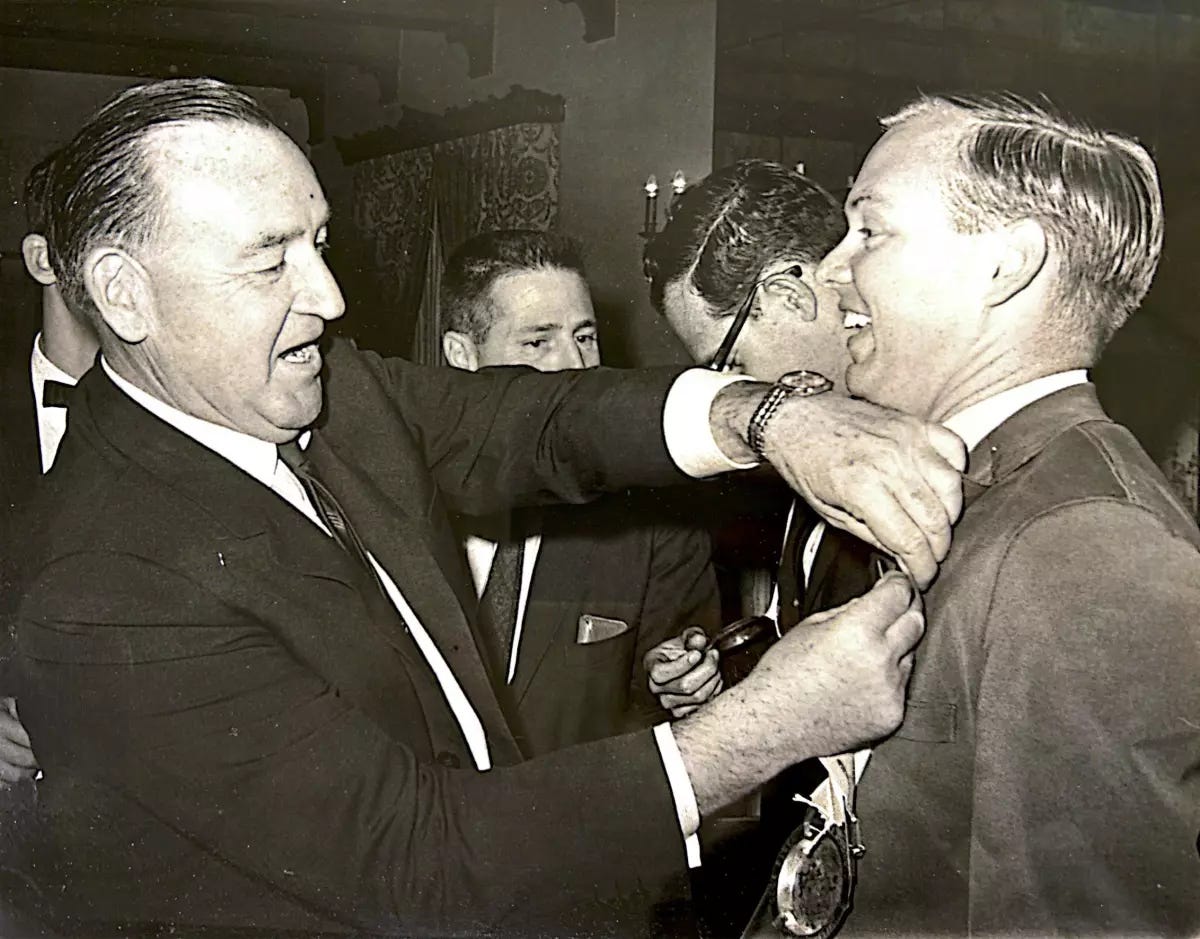
To characterize George Skelton as an institution in California is an understatement. For decades he has been the dean of the Capitol press corps and his 50 year career was celebrated by the entire California political industrial complex a couple of years ago. What George Skelton has seen and reported on is remarkable. He covered the political rise of Ronald Reagan as a beat reporter. He was a few feet from Gerald Ford during the assassination attempt by Manson follower Squeaky From. He covered the recall of Governor Gray Davis, a young quirky eccentric Jerry Brown in the 1970’s and an old, curmudgeonly eccentric Jerry Brown in the 2010’s. He’s recorded earthquakes, oil spills, scandals, energy blackouts, riots, rallies, revolts and the improbable election of Arnold Schwarzenegger as Governor of California.
George was working on a story about how the social unrest that was unfolding might affect the outcome of the Trump-Biden contest and we walked through the most recent polling data, the state of race relations and how I was viewing the Presidential contest.
Talking to journalists on the phone was the main source of human contact I had at the time and I relished the opportunity to meander through everything that was going on in our world. George’s hearing wasn’t the best anymore and his pace had grown slow. It demanded a fast talker like me to slow down and that gave me the opportunity to think longer and deeper about what was unfolding and how our political system was holding up to the stressors working to break it down.
“George, have you ever seen things worse”, I asked.
“What do you mean?”, he responded gruffly.
“I mean we’ve got a pandemic, social unrest, an economy in free fall and a lunatic in the White House. It feels like the end of times. Have you ever seen it worse?” I asked.
The clacking on his keyboard stopped and I could almost see him look up from the computer screen to better contemplate the question. Memories were flipping and filing back through his mind like paper cards in an old Rolodex. He grew quiet for a good long period of time and then softly, but with certainty, he spoke.
“Yeah…1968”
It’s easy to think things have never been worse or that the end is near. But objectively, things have been worse than they are now many times before in U.S.—and world—history.. Frankly, they have been a lot worse just in living memory.
1968 was a hell of a year.
A lot of you reading this have memories of it. The peace movement, flower children, free love and the Woodstock vibe that defined 1967 crashed violently into a tumultuous racial, social, technological and political conflict.
The Summer of Love turned into the Age of Rage.
Some might call it a Great Transformation.
Thousands of American soldiers were coming home in body bags from a far off conflict in Vietnam. Television—then a newer technology—was polarizing the country by sharing live information that was different than what our government was telling us. Race riots were setting the country’s cities aflame, burning not just buildings but an old mindset of ignoring injustices that had festered for too long. Political assassinations, convention upheaval and an unpopular incumbent President bowing out of a campaign all defined the era.
If any of this sounds familiar it should. History is rhyming.
Consider just these top ten events from 1968:
January - North Vietnamese communists launch the Tet Offensive.
March - The Chicano Blowouts in Los Angeles. Some 15,000 Latino high school students in Los Angeles walk out of classes to press their demand for a better education.
March - Under withering pressure and dismal primary results sitting President Lyndon Baines Johnson announces he will not seek the Democratic nomination for President and will not stand for re-election.
April - Martin Luther King Jr., in Memphis is assassinated on the balcony of the Lorraine Motel. Gunman James Earl Ray, a white supremacist, flees the country. Over the next week, riots in more than 100 cities nationwide left 39 people dead, more than 2,600 injured and 21,000 arrested.
June - Robert F. Kennedy, gaining momentum in his presidential campaign, wins the California primary—and is assassinated at the Ambassador Hotel in Los Angeles. Gunman Sirhan Sirhan, a Jordanian citizen of Palestinian descent, is captured at the scene
August - At the Democratic National Convention, police and National Guardsmen club and tear-gas antiwar demonstrators on live TV.
October - At the Olympic Games in Mexico City, Americans Tommie Smith and John Carlos receive the gold and bronze medals in the 200-meter dash, then raise gloved fists during the national anthem to protest violence toward and poverty among African-Americans. The next day, the International Olympic Committee strips their medals and sends them home.
November -Nixon wins the presidency, beating Humphrey by just 0.7 percent of the popular vote. Segregationist candidate George Wallace carries five Southern states.
November - Shirley Chisholm of New York becomes the first black woman elected to the U.S. House of Representatives.
December - Apollo 8 becomes the first manned spacecraft to orbit the Moon and return safely to Earth. During the mission the “Earthrise” photograph is taken.
Lessons from LBJ
With all of this in mind I wanted to take a detour on my trip to the Texas Tribune Festival or “TribFest” as the cool kids call it. I’m a big fan of museums, which should come as no surprise to anyone, and I’m a particular fan of Presidential libraries.
By luck or coincidence the LBJ Presidential Library is less than a mile from the site of ‘TribFest’ so no way was I gonna miss it.
Lyndon Baines Johnson. The master of the Senate. One of the great inside Washington DC power politicians of the last century who will always be remembered for being unable to corral the massive social forces beyond his control.
Johnson was a dominant presence throughout his life in public service but was no match for the transformative events that collided during his Presidency. By any measure, LBJ was a President of extraordinary consequence and accomplishment - The Great Society programs reduced poverty during his administration at a rate far greater than during any other Presidency (past or future), landmark civil rights legislation, the voting rights act, arguably the most comprehensive immigration reform package in history.
And yet, Lyndon Baines Johnson is often more remembered for the chaos that reigned during 1968. In fact, at his library, every year is allotted a space about four feet across —but 1968 has twelve feet of space—most of it documenting a country in chaos. Racial, economic, and technological changes that defined a new age.
The lesson of Lyndon Johnsons Presidency was that sometimes the man doesn’t make the times, rather the times make the man. The comparisons of the Johnson presidency to Biden’s are eerily similar. Like Joe Biden’s Presidency, Johnson’s accomplishments were vast and consequential.
Both men were masters at the craft of legislating. Both men spent their entire lives learning how to make things work in Washington. Both men profoundly changed the direction of the country.
Both men were enveloped by the transcendent moments of their time.
Because of the enormity of the Great Transformation they faced, both men decided to step aside for the better of the country.


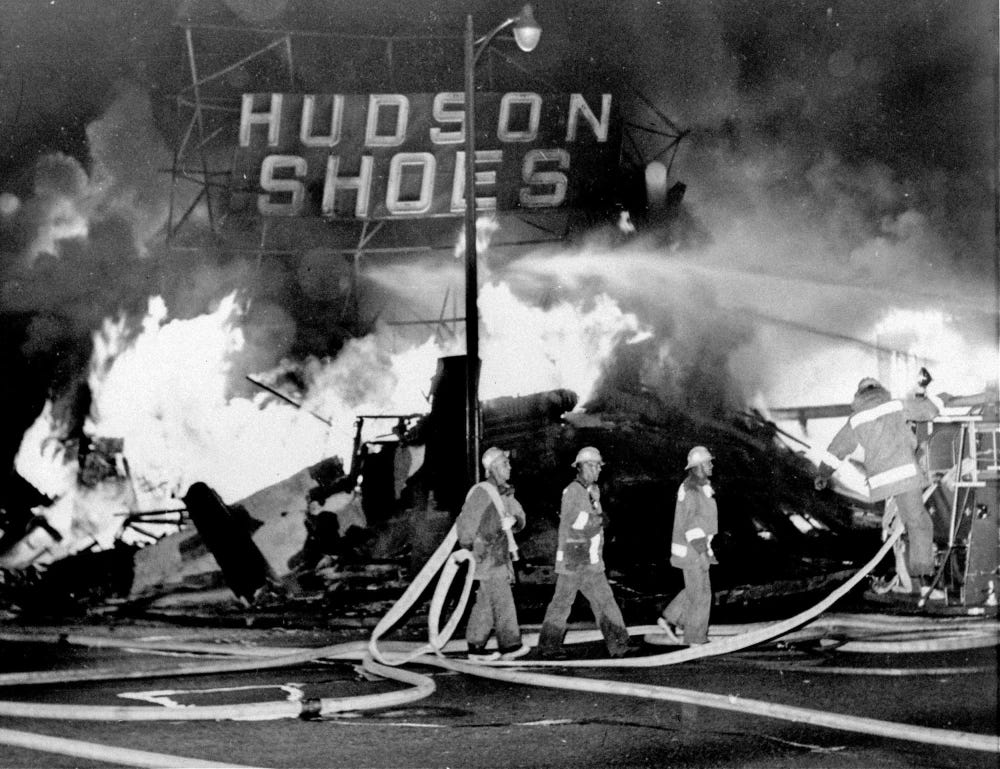
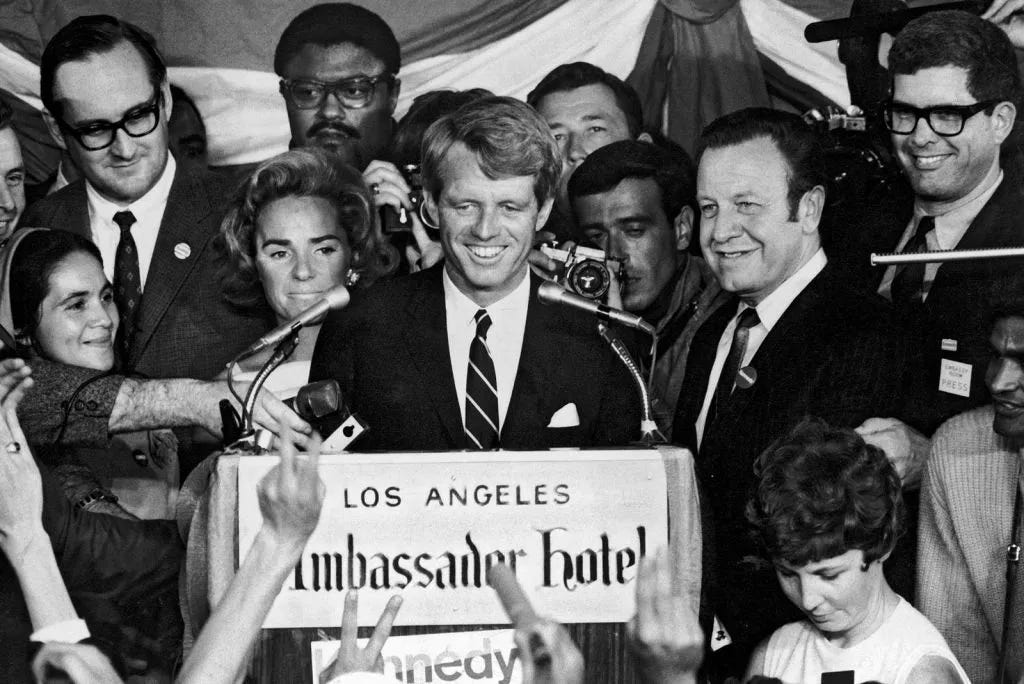
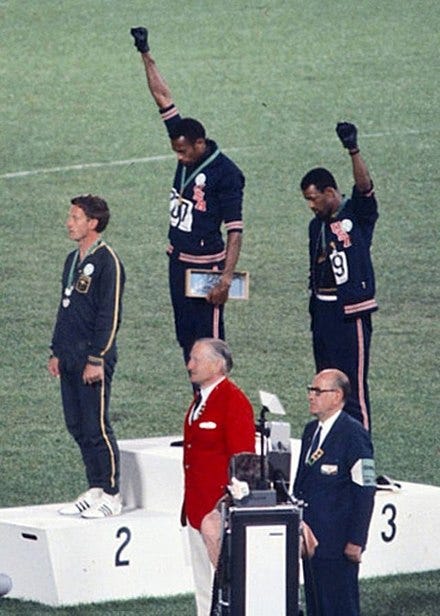
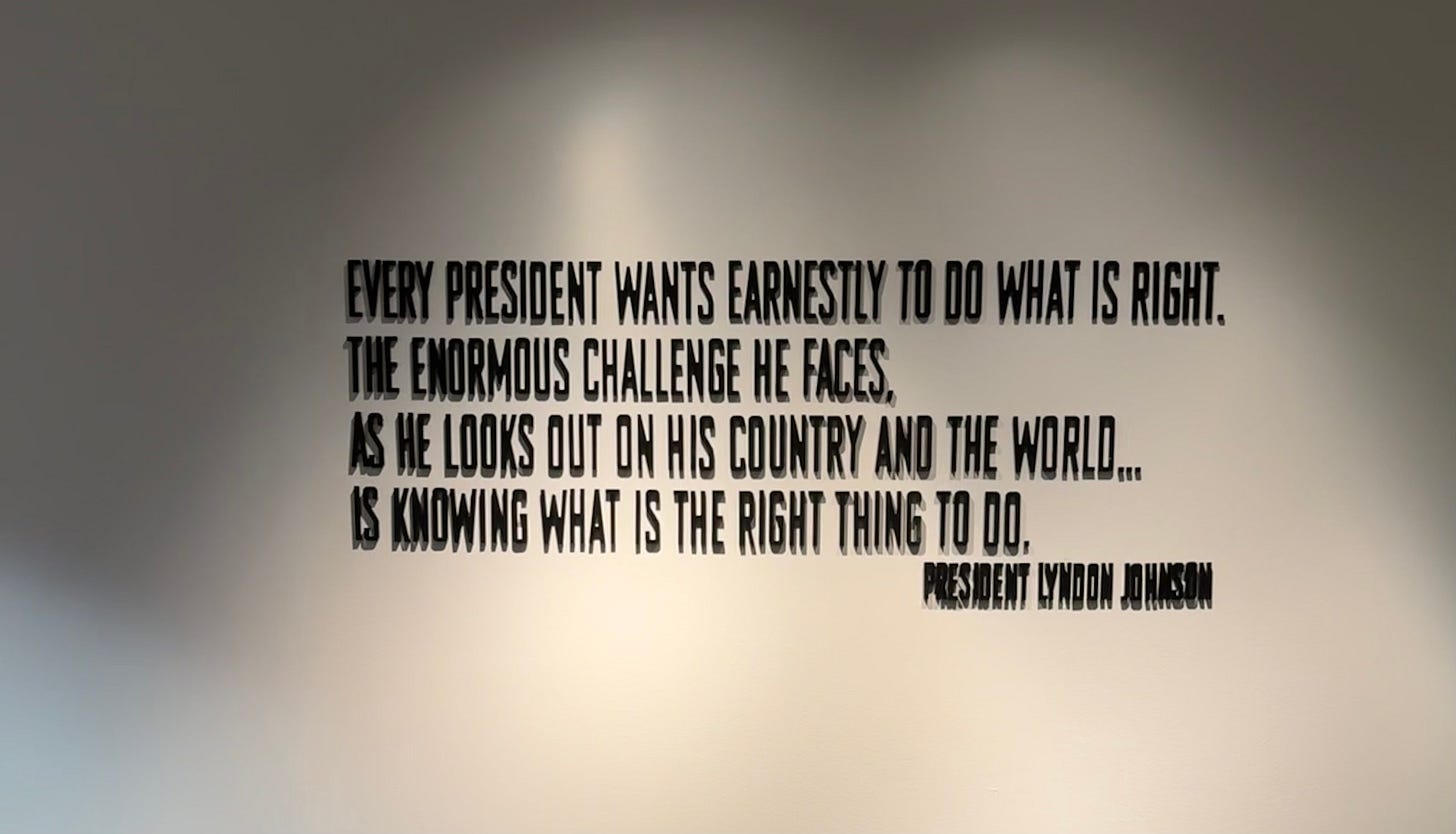

Great perspective, Mike. I appreciate the article. The book Nixonland by Rick Perlstein chronicles the chaos in America from 1965 - 1973, and it paints a picture of America in the grips of mayhem, chaos, and, at times, what felt like anarchy. Political parties frayed and split. Strong men bullied the vulnerable. Powerful leaders changed long-held positions overnight. Lots of strong parallels. Best I can tell, the main difference is that there wasn't cable news and social media in that eight-year stretch—but it was just as, or more, crazy as today's era. It's quite a compelling read: https://www.goodreads.com/book/show/2393575.Nixonland
History doesn't repeat itself, but it does rhyme Mark Twain good to see you peopling